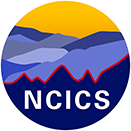Identifying Business / Industry Needs for Resilience Planning
Agenda
| Monday, November 4, 2013 | |
| 11:30 – 12:45 PM | LUNCH AND NETWORKING |
| 12:45 – 1:00 PM |
WELCOME & OPENING REMARKS Elliot Diringer, Executive Vice President, C2ESOtis Brown, Director, NOAA’s CICS-NC |
| 1:00 – 1:30 PM |
SESSION 1 – CLIMATE CONVERSATION THE STATE OF THE CLIMATE – A discussion on how scientific assessments, such as the IPCC reports, connect to business decisions, and the broader need for public-private-academic partnerships to advance decision support services. Opening Speaker: Thomas Karl, NOAA National Centers for Environmental Information ADVANCING CLIMATE ADAPTATION – A discussion on how climate data/information is used for business decisions in the area of climate adaptation |
| 1:30 – 1:40 PM |
Discussion / Questions, Moderator: Otis Brown, NOAA’s CICS-NC |
| 1:40 – 2:15 PM |
SESSION 2 – CLIMATE DATA TO DECISIONS Applications of weather and climate data for decision making in resources and production inputs. |
| 2:15 – 2:30 PM |
Discussion / Questions, Moderator: Janet Peace, C2ES |
| 2:30 – 2:45 PM |
BREAK |
| 2:45 – 3:30 PM |
SESSION 3 – HOW DOES CLIMATE AFFECT MY BUSINESS? (PART 1) Breakout groups (6-8 people) will brainstorm to identify ways that climate impacts can affect COSTS. Discussion Leader: John Macomber, Harvard Business School |
| 3:30 – 4:00 PM |
SESSION 4 – CLIMATE MODELS AS AN INFORMATION SOURCE Current state of climate models and projections: What do uncertainties, timescales, and scenarios mean for a decision maker? What are the available suites of monitoring and prediction products available from NOAA Climate Prediction Center? |
| 4:00 – 4:10 PM |
Discussion / Questions, Moderator: Joe Casola, C2ES |
| 4:10 – 4:25 PM |
SESSION 5 – INTEGRATED FEDERAL PERSPECTIVE ON CLIMATE INFORMATION RESOURCES – Presenter: Thomas Armstrong, Executive Director, U.S. Global Change Research Program, Office of Science and Technology Policy, Executive Office of the President |
| 4:25 – 4:35 PM |
Discussion / Questions, Moderator: Joe Casola, C2ES |
| 4:35 – 5:00 PM |
DAY 1 CLOSING REMARKS Moderator: Janet Peace, C2ES |
| 4:25 – 4:35 PM |
Discussion / Questions, Moderator: Joe Casola, C2ES |
| 6:00 – 7:00 PM |
NETWORKING RECEPTION
|
| 7:00 – 9:00 PM |
DINNER AND CONVERSATION Location: District Chophouse – The Vault Panelists: Joe Casola, C2ES; Amy Snover, University of Washington; Otis Brown, NOAA’s CICS-NC |
| Tuesday, November 5, 2013 | ||
| 8:00 – 8:45 AM | BREAKFAST NETWORKING | |
| 8:45 – 9:00 AM |
Janet Peace, Vice President, C2ES |
|
| 9:00 – 10:00 AM |
SESSION 6 – HOW DOES CLIMATE AFFECT MY BUSINESS? (PART 2) Breakout groups (6-8 people) will brainstorm to identify ways that climate impacts can affect REVENUES. Discussion Leader: John Macomber, Harvard Business School |
|
| 10:00 – 10:10 AM |
BREAK |
|
| 10:10 – 10:50 AM |
SESSION 7 – EXAMPLES OF BEST PRACTICES Best practices in corporate strategies for resilience planning Presenters: John Firth, CEO and Founder, Acclimatise; Michelle Colley, ICF |
|
| 10:50 – 11:30 AM |
SESSION 8 – EVALUATING CLIMATE RISKS AND OPPORTUNITIES How can companies best evaluate climate risks and opportunities across weather and climate timescales? Presenter: Amy Snover, University of Washington |
|
| 11:30 – 11:45 AM |
SESSION 9 – GROUP DISCUSSION / QUESTIONS AND ANSWERS Moderator: Janet Peace, C2ES |
|
| 11:45 – 12:45 PM |
LUNCH CONVERSATION and DISCUSSION Speaker: Remarks from Susan Ruffo, Deputy Associate Director for Climate Change Adaptation at the White House Council on Environmental Quality (CEQ) |
|
| 12:45 – 1:30 PM |
SESSION 10 – OPERATIONALIZING CONSIDERATIONS OF RISK AND OPPORTUNITIES Discussion Leader: Amy Snover, University of Washington |
|
| 1:30 – 2:15 PM |
SESSION 11 – GAPS AND NEEDS FOR ASSESSING RISK AND IDENTIFYING OPPORTUNITIES In three groups (one for government/academia, one for consultants, and one for private sector end-users) identify the data and information needed to address questions presented in the flow chart. Are there gaps? Who can and should provide the data/information/tools? What key actions are needed to enable companies to gain value from the use of climate data, information, and tools? Discussion Leaders: John Macomber (Industry), Andy Hoffman (Government/Academia), Joe Casola (Consulting) |
|
| 2:15 – 2:30 PM | NETWORKING BREAK | |
| 2:30 – 3:00 PM |
SESSION 12 – GROUP DISCUSSION – ACTIONS TO SUPPORT PUBLIC-PRIVATE PARTNERSHIPS IN AN IDEAL WORLD Discussion to allow groups to report back, with a focus on summarizing identifying gaps, the actions necessary to address these gaps, and the entities that are responsible. Discussion Leaders: Andy Hoffman, University of Michigan |
|
| 3:00 – 3:30 PM |
SESSION 13 – GROUP DISCUSSION – ACTIONS TO SUPPORT PUBLIC-PRIVATE PARTNERSHIPS FOR BUILDING RESILIENCE Panelists, from their perspective, will provide responses and reactions to the Session 12 Group Discussion, surrounding the assessment of climate risk and the identification of opportunities. In examining the key actions of the last session, panelists will discuss the appropriateness of the requirements identified in Session 12, and their capacity to be involved. Discussion Leaders: Andy Hoffman, University of Michigan |
|
| 3:30 – 3:45 PM |
CLOSING REMARKS and NEXT STEPS Janet Peace, C2ES |
|
